Labor, Coalition housing ministers insist spending splurge promises won't hike home prices
Housing ministers have insisted multi-billion dollar pledges to help Australians buy their first home won't increase property prices, as one economist called the policies a "cruel hoax".
Housing Minister Clare O'Neil and Shadow Minister Michael Sukkar faced voters in an at times heated Q+A from the Melbourne suburb of Berwick, a day after after both sides launched big-ticket housing policies.
Ms O'Neil called Labor's housing agenda the "boldest and most ambitious" in the post-war period — but it won't have "any significant impact on house prices across the country".
Labor formally launched its campaign in Perth on Sunday, with Prime Minister Anthony Albanese promising another $10 billion for new homes and a loan guarantee for first-home buyers so they only require a 5 per cent deposit.
"If you do meaningful things to help first-home buyers get better access to housing, you need to couple that with an increase in housing supply, and that's exactly what our government is doing," Ms O'Neil said.
Also launching his campaign on Sunday, Opposition Leader Peter Dutton announced a scheme allowing first-homer buyers to deduct part of the interest paid on mortgages from their income taxes.
Mr Sukkar insisted "our measure is specifically designed to add stock" and therefore won't inflate the housing market.
One voter told the pair their policies "seem fraught with risk". Other economists argue the initiatives may push property prices higher.
Richard Denniss, who heads the progressive think tank The Australia Institute, told Q+A nothing changes while house prices rise faster than wages.
"I'm sorry, but it's a cruel hoax for people to tell you that, you know, a tax break here or something or other there is going to help," he said.
Independent MP Zali Steggall also charged the major parties with dodging broader tax reform that could help home buyers.
"We have to have that difficult conversation," she said.
Submit a comment or question
Live updates
Q+A returns after an Easter break
Q+A takes an Easter break before returning for the final fortnight of the election campaign.
Stay tuned for updates on the panel and register your details to join the next audience in Sydney.
What you had to say
We love hearing from you. Here's some thoughts.
I vote Ken Henry for prime minister! His three points are exactly what I’m looking for from our political leaders.
- Amanda
We need tax reforms on people who are sitting on multiple investment properties/ Air BNB. These are core issues in housing supply. Why don’t we talk about disincentivising this greed?
- Tracey A
Why not a 25% GST like many Scandinavian countries and provide free education, health care and child care.
- Ross
While watching TV this evening a clip of Jacinta Nampijinpa Price saying “…to ensure we can make Australia great again…”, my six year old granddaughter asked “ why did she say that nana, Australia is great!”.
If a young child thinks this then do you think this message might be upsetting many adults who, despite our problems, think Australia is still a great country!
- Eve Adamson
'We don't need Australia's Elon Musk': Panellists strike solidarity on nation's strengths
In a hopeful ending note, most of the panellists seem to agree that Australia is already great — it just needs some tweaks.
Campbell says if we're looking to the US for direction we've "got bigger problems than a housing crisis or a cost-of-living crisis".
Denniss says he'd like to "make Australia even better" while criticising Price's Musk-esque title.
Sukkar says Australia is, in fact, the best country.
"I think we could be an even better country if we were governed better, but we'll always be, in my view, the best country in the world," he says.
O'Neil, slightly disturbed to be agreeing with Sukkar, says it's clear "Australia is a better country than America."
"We don't need to borrow phrases and concepts and ideas," she adds.
"We don't need Australia's Elon Musk. I think we've got what we need here."
Meanwhile, Steggall says Australia has "incredible potential" but is held back by ideologies from the past.
"The idea of going back is only embracing the problems we've had for so long," she notes.
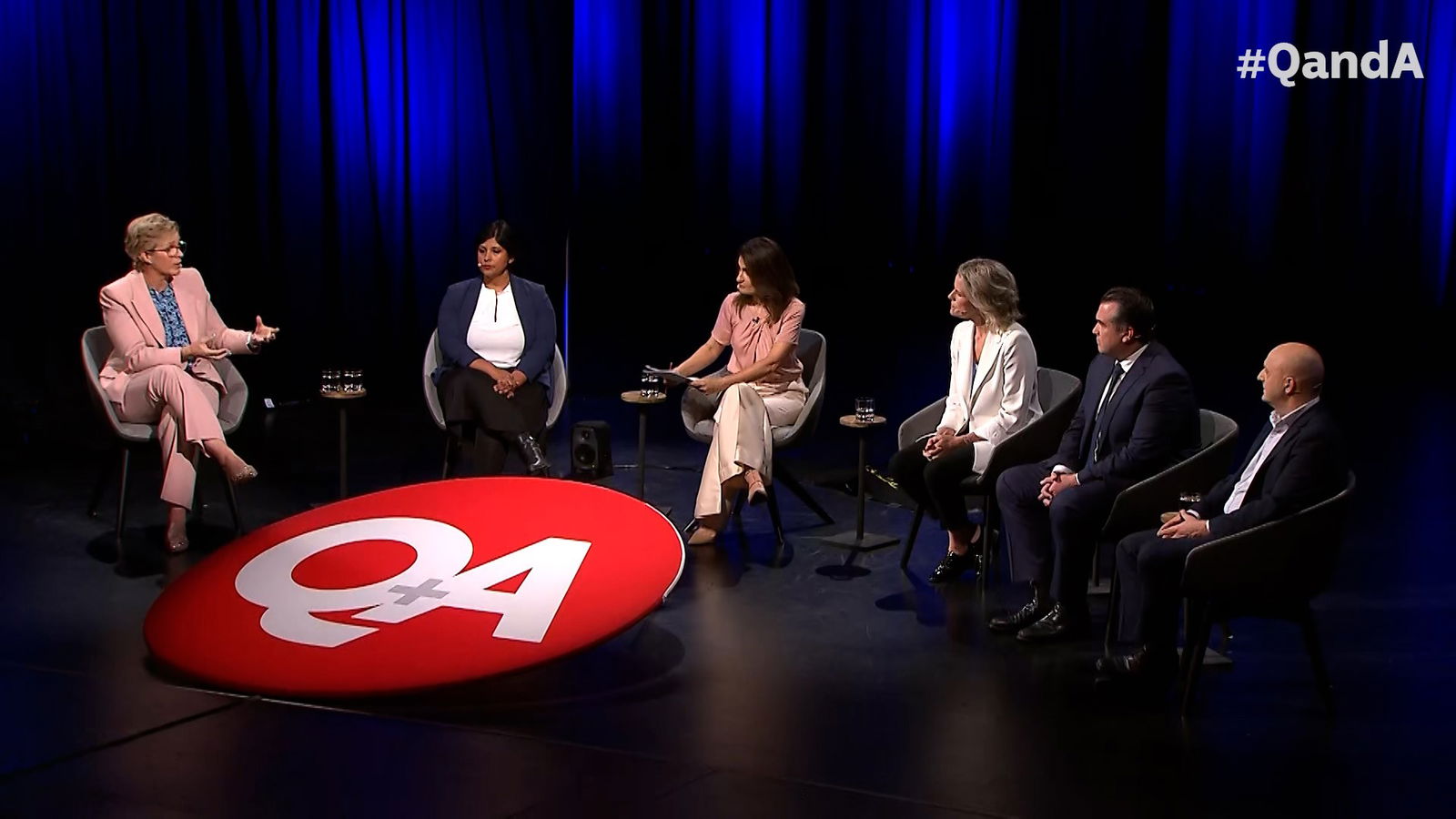
What’s wrong with making Australia great again?
Audience member Ashlea Vout has asked a question about Coalition Senator Jacinta Nampijinpa Price's recent MAGA misstep.
ICYMI: Price vowed to "make Australia great again" during a speech over the weekend.
"The media jumped on this as a correlation with Trump‘s MAGA policy. My question is what is actually wrong with making Australia great again?" Ms Vout asks the panel.
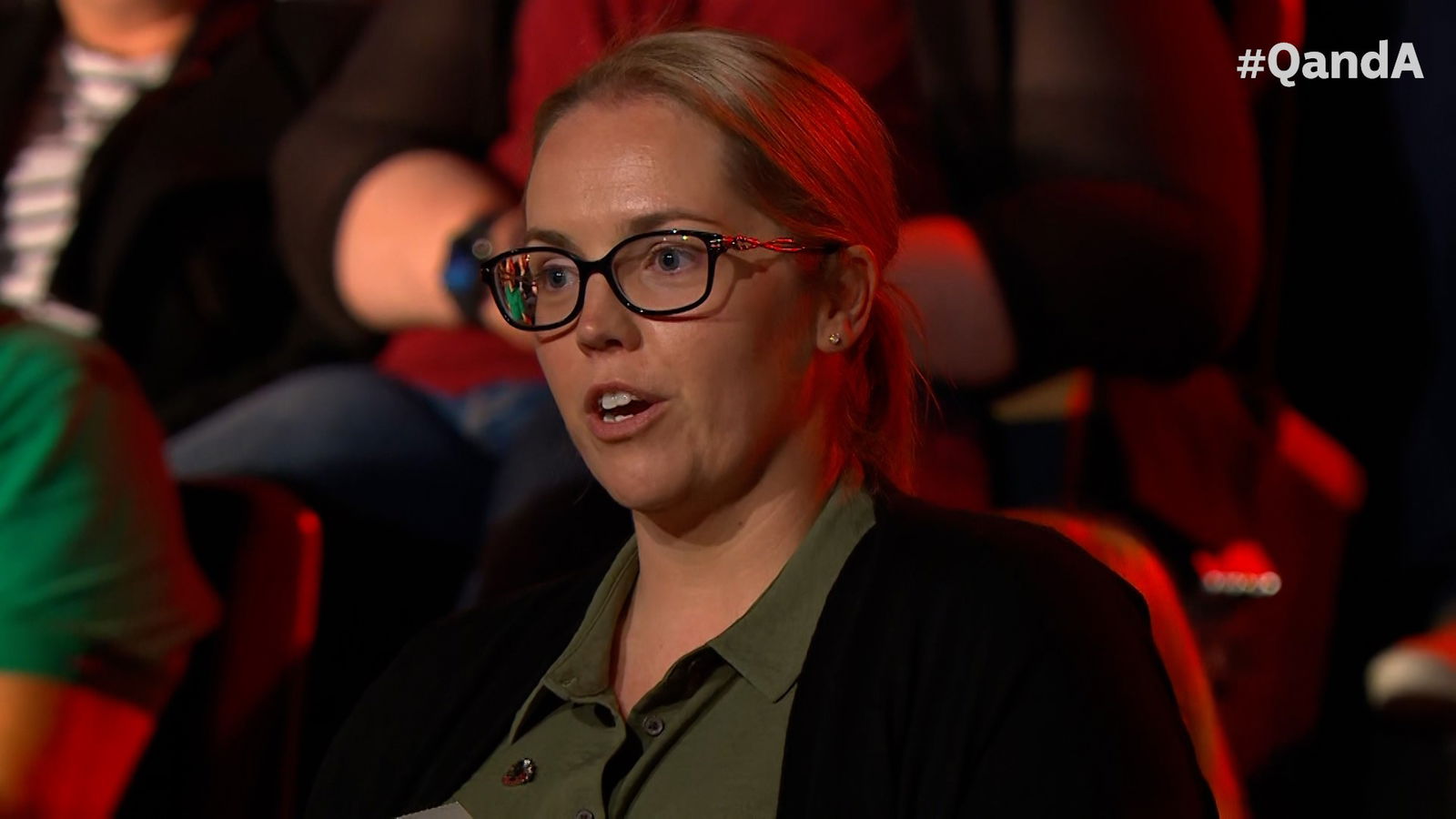
'We're so rich we can drop a lazy $360 billion on some nuclear subs', Denniss says
Sukkar says he's depressed by the concept of the "working poor" that has arrived in Australia.
"Where I very much disagree with Richard, is we don't have an income problem. We've had in the last three years an extra $425 billion spent," he says.
"That suggests to me that there's not a shortage of revenue coming to government, but governments spending too much."
Here, Denniss gets in an aside that leaves the room in applause.
"I can save you a fortune," he says.
"$15 billion a year in fossil fuel subsidies, AUKUS $360 billion dollars.
"We're so rich we can drop a lazy $360 bill on some nuclear subs we didn't know we need.
"But 'sorry unemployed people money doesn't grow on trees'.
"We're rich."
'Really tough' on fixed incomes but no JobSeeker promise
Clare O’Neil acknowledges it’s been “really tough” for those on fixed incomes. But there’s no promise to lift JobSeeker tonight:
“Please understand, every budget we come to, we are absolutely trying to find every single way that we can help people relieve pressures.”
Michael Sukkar notes the Coalition backed the last lift to JobSeeker and "all people in government look at every opportunity to increase those payments". But:
"We also have to think about ... the people that we would be asking to tax more in order to increase those payments."
📹: Nicki Hutley on upside of JobSeeker rise
Another economist with a challenge for all sides of politics: why not significantly hike JobSeeker payments for the unemployed?
Nicki Hutley was a partner at Deloitte Access Economics and more recently worked with the Climate Council. She says there's economic upside in increasing payments:
Loading..."New research just last month has shown us that if we invest $1 we will get $1.25 return back to us. Now that is a very solid return on investment in terms of healthier people, lower government payments, better productivity. It is a win-win outcome."
📹: Single dad needs multiple jobs to pay mortgage
ICYMI: Steve Whittington offers his story from the audience, a single father who says he may need a third job to help pay the mortgage on his home of 24 years.
Loading..."Since the last federal election, my mortgage repayments have gone up by 16 per cent, my electricity bill by 12 per cent, my council rates 20 per cent, my grocery bill 17 per cent, my private health cover 32 per cent ... in the same period, my salary increased by only 7 per cent."
Australia isn't 'collecting enough tax' — at least not from big business
Richard Denniss says Australia needs to figure out its priorities.
He says we're not "collecting nearly enough tax" — at least from the right people.
He says the big banks made an $18 billion profit on mortgages last year, while supermarkets made an extra billion dollars because their profit margins went up.
"We can either collect more tax from the big businesses that can afford to pay it, or we can say, sorry, Marj, you've had it too good for too long," he says.
"But we can't pretend to have both."
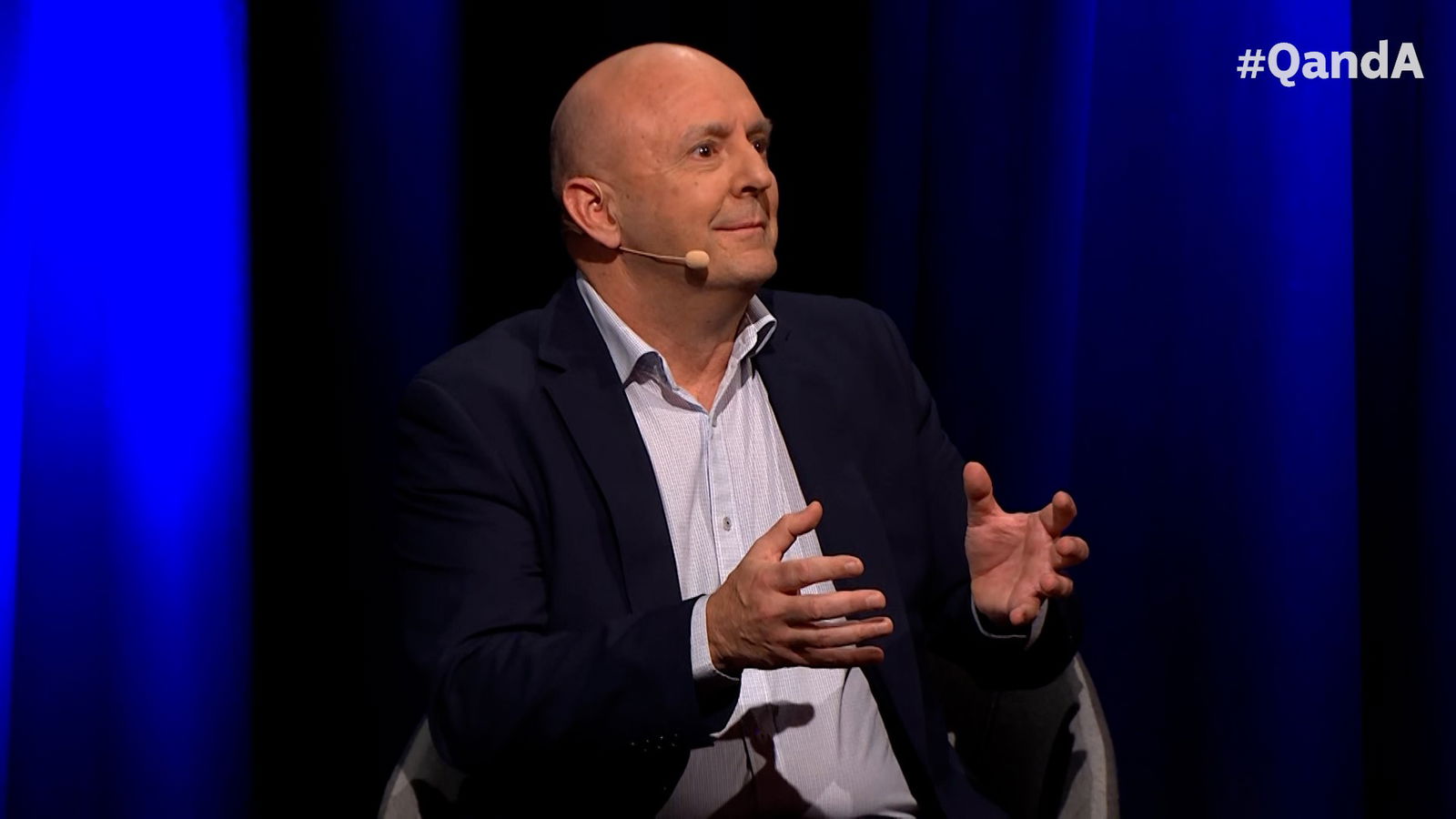
Do leaders know how difficult life can be on the pension?
Audience member Marj Richmond is asking a question as a retiree of 10 years.
She says the latest pension increase for a couple equates to 25c a day, and asks the panel how they can justify telling the nation "everyone is doing it tough".
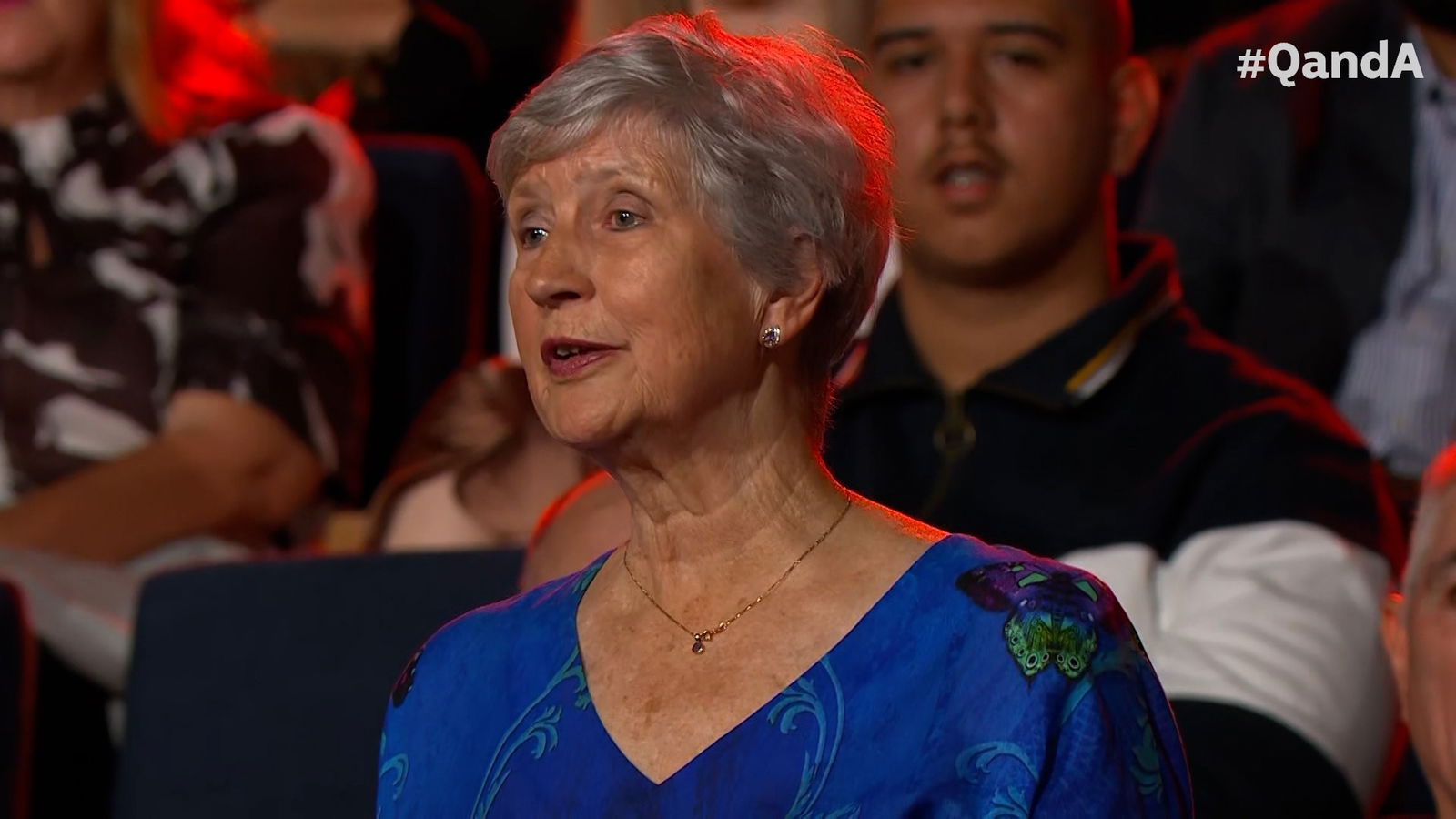
Relief is giving young Australians a bill they'll ultimately pay: Melbourne's deputy mayor
Stuart has been asked more about his belief both parties are charging the credit card to taxpayers.
"Every day someone comes out and spends another billion dollars like they don't have to pay for it because they don't; we do," he adds.
Steggall says instant asset write-offs should be made permanent for small business owners.
Campbell agrees there needs to be better "fiscal responsibility" by both parties.
"I do think there is an element of providing relief to a generation that needs it, but ultimately that is a bill that they're going to be paying," she says.
Meanwhile O'Neil and Sukkar both show small hints of solidarity towards the plight.
O'Neil asks to talk to Stuart after the show.
"It honestly breaks my heart to talk to citizens who actually believe that we're not trying to do the right thing every day," she adds.
Meanwhile, Sukkar points out his history of working with former minister Bill Shorten on "really importatnt" NDIS reform.
He also adds one last sneaky jab at skyrocketing energy costs.
"We do work for you because small businesses overwhelmingly employ the vast majority of Australians."
More about the electorate of Bruce
We're in the federal electorate of Bruce tonight, which includes parts of Berwick and the suburbs of Dandenong, Doveton, Endeavour Hills, Eumemmerring, Hallam and Narre Warren.
It's Labor heartland - or at least it has been since the 1990s. But a redistribution has sliced Labor MP Julian Hill's margin from 6.6 per cent to 5.3 per cent.
And with the Labor brand particularly on the nose in Victoria, Liberal candidate Zahid Safi - an Afghanistan-born self-employed businessman - might like his chances. ABC guru Antony Green has put it in the marginal column.
Can government learn to control its own costs?
Audience member Stuart Brown is a small business owner who is "doing it tough".
He accuses the politicians of "taking the easy route" and announcing billion-dollar policies on Australia's "Afterpay account".
"Actually tell us when you're going to deliver what will create a sustained, real difference for Australia's largest employer, which is small business?" he asks.
Panellists struck by audience member considering picking up a third job
The panel is then told Steve is considering picking up a third job.
O'Neil falls back on some of Labor's major cost-of-living relief wins.
"I just want you to know we've done everything in the last three years that we can," she tells Steve.
"Cheaper childcare, cheaper medicines, the energy bill price relief —$300 that went to you last year— and then $160 coming again going forward."
"We're trying to do the right thing here, support your wages growth and assist with the cost-of-living wherever we can."
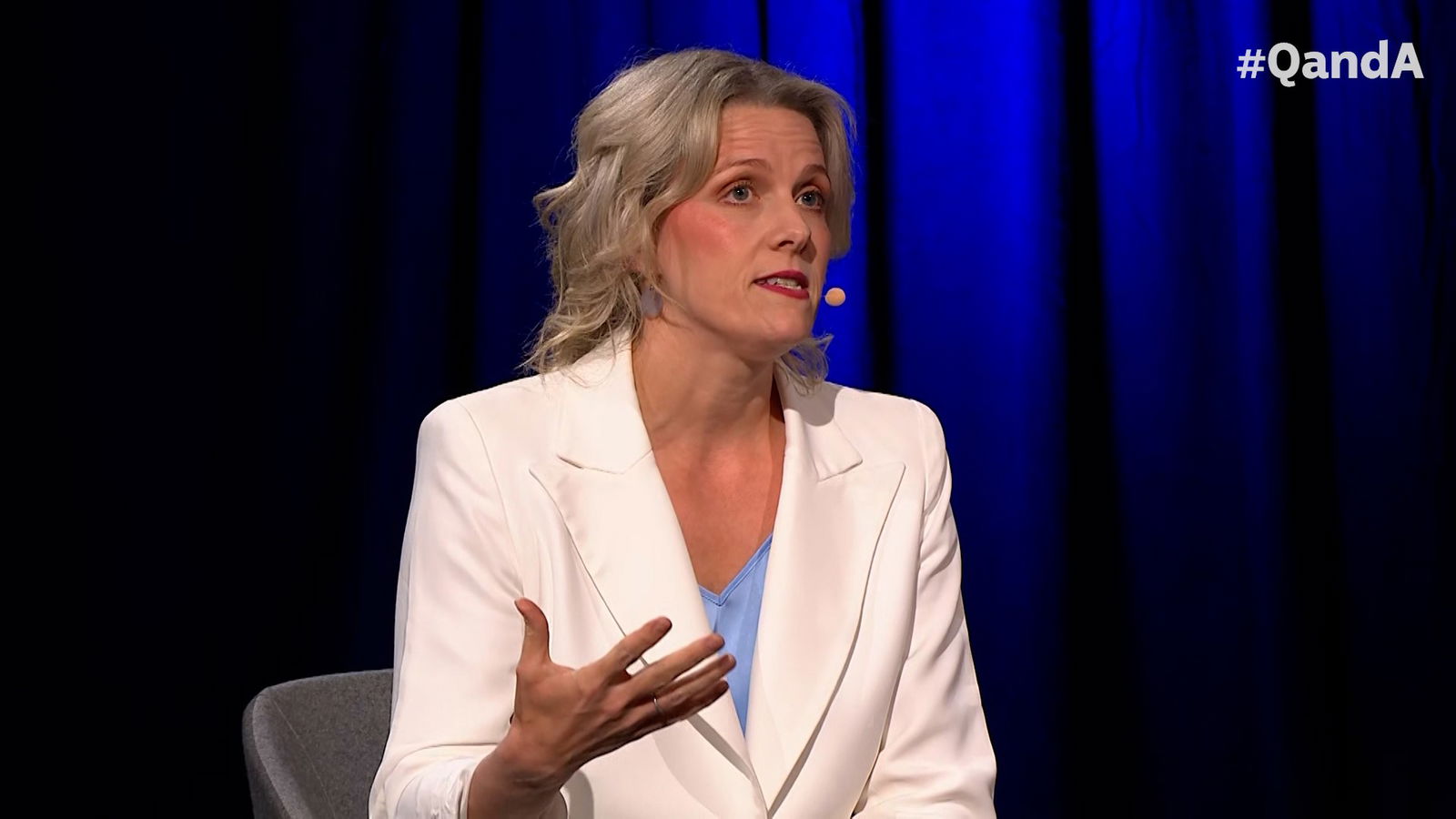
Meanwhile, Sukkar turns to the Coalition's new tax offset and fuel excise cuts as means to improve's Steve's life.
"Those are a couple of practical ways but in the long run, what do we need to do?" he adds.
"We need to ensure that government spending is under control, and that taxes are under control."
'Victoria has lost its swagger': Deputy mayor pushes for a 'low-taxing approach'
Karvelas asks Steve to remain standing, and asks him what he needs to see leaders promise.
"We need to have structural tax reform with housing, and we need to do something about wages, because we just do not have the bargaining power," he answers.
An anecdote emblematic of many Australians, Campbell sympathises with Steve and says "we need all levels of government to take a low-taxing approach".
She uses her own state as an example as one "crippled by tax".
"It means Victoria has lost its swagger," she says.
"We've lost our confidence. We don't feel we've got that strong long term trajectory."
She finishes by saying she wishes this election was focused on multi-generational solutions.
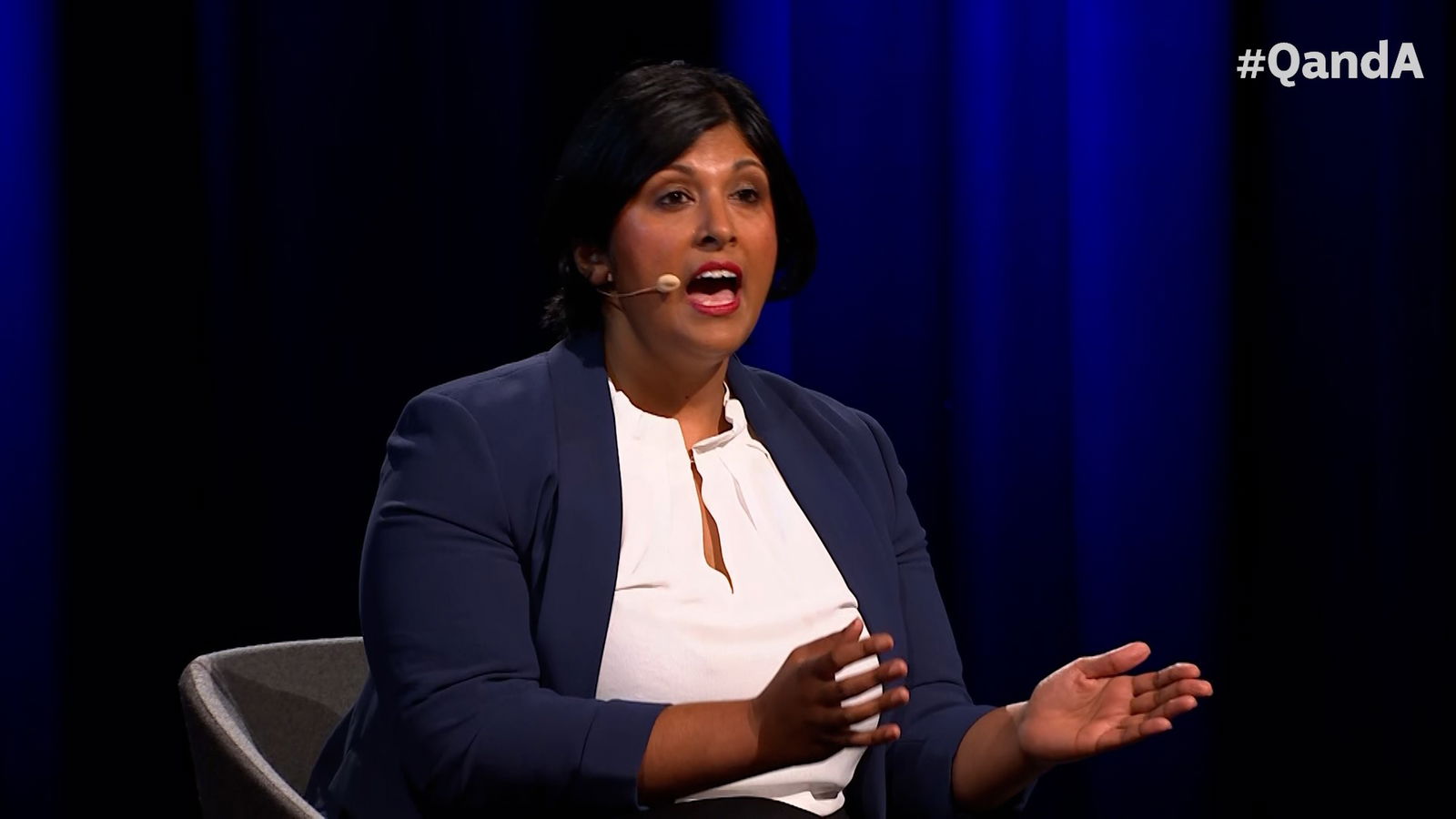
Who can push down inflation and hike up wages?
Audience member Steve Whittington says his mortgage repayments have gone up 16% since the last election.
Factor in rising electricity prices, council rates, grocery bills and private health insurance, he tells the politicians he's gone "backwards".
"What are the parties doing to rein in spiralling costs and boost wages for middle-income families?" he asks .
'We're talking about big reforms': O'Neil
Has the government dodged the big policy challenges, as Ken Henry argues? Not according to Clare O’Neil:
“I don't agree with Ken Henry, actually. I usually do, but not on this occasion.”
Clare says Labor is “talking about some really big and important things this election”, namely its big-ticket housing policies.
Michael Sukkar concedes there’s an “over reliance on personal income tax” which particularly punishes younger Australians (a cohort he says the Coalition’s first-home buyer mortgage deductibility policy will help).
Zali Steggall notes when O’Neil and Sukkar brawled over housing policy “no one even mentioned tax reform”:
“We have to have that difficult conversation.”
📹: Ken Henry on tax reform, 'band aid solutions'
We’ve been asking eminent Australians to tell us what they think are the really big issues this election campaign - whether politicians want to talk about them or not.
Ken Henry spent a decade leading the Department of Treasury until 2011. He’s scathing of the “scare campaigns” and “band aid solutions” offered by both sides of politics.
His solution? Government must:
Loading...“... reform the tax system to boost business investment and productivity, to improve housing affordability, and most importantly, to take the burden of balancing the budget off the shoulders of young Australian workers. The second thing it must do is it must put Australia on a more certain and more ambitious carbon abatement trajectory.”
'Is it about voters or is it a substantial policy?': Sukkar quizzed about voter grab
Karvelas brings the question back to Georgia: Would she use her super to help buy a home?
Georgia queries how — given young women traditionally accumulate less super long-term.
Sukkar notes Georgia is, in a sense, "the target market" of the Coalition's policy suite.
The response gets a laugh from the crowd, and leads Karvelas to ask him this:
"Is it about voters or is it a substantial policy?"
Quickly rewinding, Sukkar says an Australian like Georgia faces two big challenges; that being a deposit hurdle and repaying a mortgage.
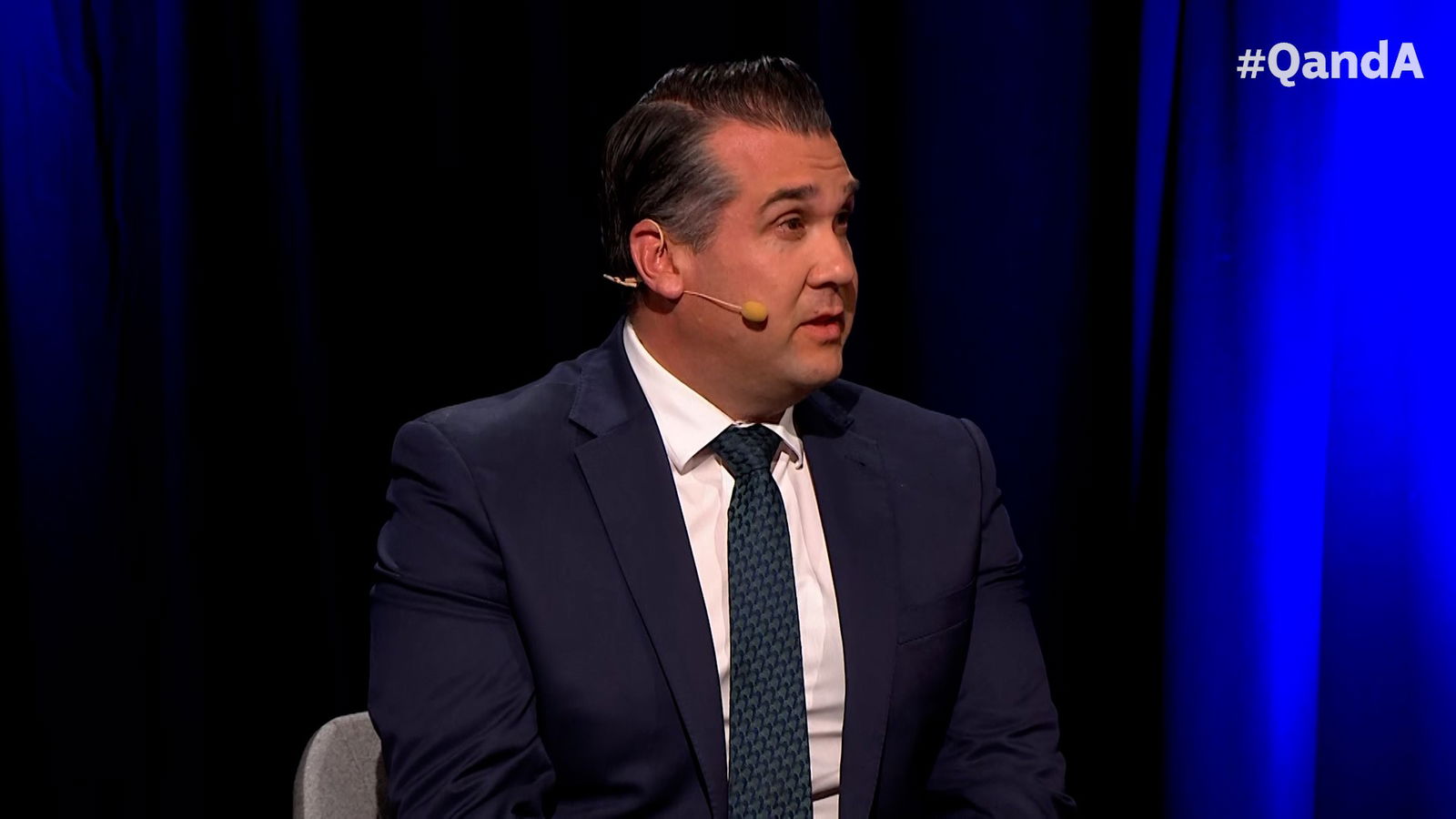
O'Neil then questions why the Coalition would aim to take away the "superannuation savings of your entire generation".
"You're going to bid against each other in an auction and effectively gift that to the older property-owning generation," she tells Georgia.
She also uses the chance to dig in about the Coalition's tax cut promises (another one of its weekend promises).
"It's not going to build a single new home around our country, and it is not going to get a single person into home ownership who wasn't already going to get into home ownership," she says.
"Like what a waste of money."
Policies are a 'cruel hoax' for young Australians, economist says
Richard Denniss take this one, first apologising to Georgia.
He mentions an old adage by former treasurer Joe Hockey that if you can't afford a house, go and get a better job.
He says The Australia Institute has crunched the numbers and that advice would actually see young Australians today $1,000 further away from a deposit on an average house in Sydney.
"This is not complicated," he adds.
"As long as house prices are rising faster than wages, you can't catch up.
"I'm sorry but it's a cruel hoax for people to tell you that you know, a tax break here or something or other there is is going to help.
"House prices in Australia have risen so much faster than incomes that a whole generation has been left behind."
Melbourne's deputy mayor Roshena Campbell follows this, showing her support for first-home buyers to access their super.
However, she worries about what happens to the market when a government is in charge of building homes.
"If you've got the government building homes, what happens to everyone else who doesn't get those 100,000 homes?
"How much is it going to cost them to get on the property ladder?"
